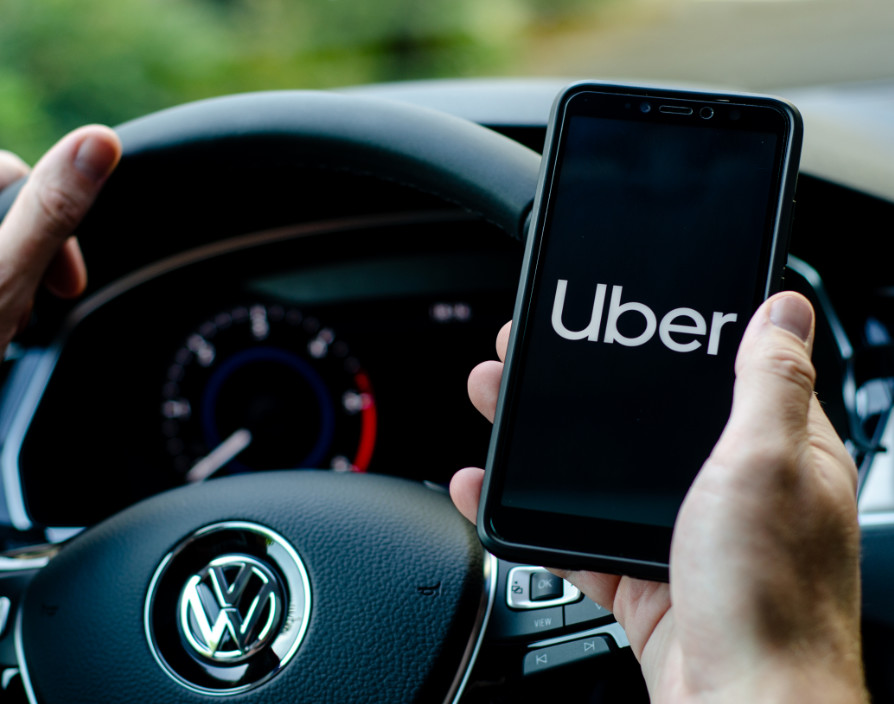How will the Supreme Court’s recent decision, which ruled against Uber, affect UK franchises and other businesses?
Franchising expert Fiona Boswell, a partner with law firm Knights PLC, discusses the implications of the ruling which stipulates that Uber drivers must be classified as ‘workers’ and therefore entitled to statutory employment rights.
According to a ruling announced by the UK Supreme Court last month, Uber must recognise their drivers as being workers, rather than self-employed. This decision brings to an end a long legal battle which began in 2016.
The background to the story goes like this: Two former Uber drivers, James Farrar and Yaseen Aslam, took the company to an Employment Tribunal, arguing they were not self-employed but actually ‘workers’. Uber disagreed with the duo, and claimed it was not the company’s responsibility to pay their drivers either a minimum wage or holiday pay. But in October 2016, the Employment Tribunal ruled in favour of James and Yaseen.
Uber appealed but in November of the following year, the Employment Appeal Tribunal upheld the original decision. Uber then took the case to the Court of Appeal, and lost once again, a decision that was announced in December 2018.
Their final appeal was again turned down, in February of this year, when the highest court in the land – the Supreme Court – upheld the previous rulings. And that is now the end of the matter, as the Supreme Court has the final say on legal arguments.
All of which means Uber‘s many drivers – reportedly around 40,000 of them – are entitled to a minimum wage and holiday pay. This ruling could leave the company with a hefty compensation bill, and have huge consequences for the so-called ‘gig economy’ as a whole.
So what are the implications of the Supreme Court’s decision for Uber, as well as the many franchise businesses across the UK?
Quick recap on worker status
HR professionals and employment lawyers often think of individuals, who are paid for the work they do, or services they perform, as belonging to one of three categories: employees, self-employed, or workers. However, as the Supreme Court reminds us, the correct legal categorisation is subtly, but importantly, different.
There are three types of people distinguished by UK employment law:
1 – Those employed under a contract of employment.
2 – Those who are self-employed and in business on their own account, undertaking work for clients or customers.
3 – An intermediate class of people who are self-employed but provide services as part of a profession or business.
Most statutory employment rights apply only to those employed under a contract of employment (above category 1). However, the right to the national minimum wage, working time protection, and paid annual leave, applies to all ‘workers’.
A ‘worker’ is defined in UK employment legislation as being someone who is employed either under a contract of employment, or under any other contract. The latter means they perform work or services personally for the other party, but not as a client or customer of any profession or business. Therefore, it includes people in categories 1 and 3 as being ‘workers’ but not category 2.
It is the distinction between those who are self-employed and in business on their own account, undertaking work for their clients or customers (category 2), and those who are self-employed, but who provide their services as part of a profession or business undertaking carried on by someone else (category 3), which is the most difficult to determine in a modern, digital, world.
The latter, together with employees, are considered ‘workers’, entitled to certain statutory employment protections. The former are not.
Central question in the Uber case
The central question in the Uber case was whether drivers, whose work is arranged through Uber‘s smartphone app, perform work for Uber. If so, this means they belong in category 3. Alternatively, as Uber were trying to imply, these drivers worked for themselves as independent contractors and were performing services via a series of separate contracts made with the passengers – and therefore should be in category 2.
In upholding the decision of the Employment Tribunal, the Supreme Court agreed that the drivers perform their duties for Uber and must therefore be classified as ‘workers’. The Supreme Court also acknowledged that the Employment Tribunal had correctly decided that the drivers’ working time was not limited to the minutes and hours spent driving passengers to their destinations.’ They ruled that they were working as drivers for the entire length of time they were logged in to Uber‘s digital app.
So what are the implications of this decision and how ‘far-reaching’ will it be?
Implications for Uber
Clearly, the ruling has very significant implications for Uber and its business model. Its lawyers, HR professionals, accountants, and other advisors, will be considering the court’s decision very carefully.
As ‘workers’, rather than self-employed contractors, drivers will be entitled to basic rights including rest breaks, paid annual leave and the national minimum wage. Following this ruling, this may entail significant arrears to be paid out. Uber‘s costs and, therefore, prices may have to be increased, making it less competitive.
Perhaps even more significantly, it has been reported that Uber could face a VAT bill of more than £2 billion, as the company is still in dispute with HMRC over the firm’s VAT liability. According to Uber‘s float prospectus from 2019, losing this case would mean HMRC could classify the company as being a transportation provider and therefore required to pay 20% VAT on gross bookings – both retroactively and prospectively.
Implications for other businesses
But what are the implications for other businesses, especially those in the so-called ‘gig economy’? For these, the Supreme Court’s decision provides both a clear warning and a ‘road map’ for the future:
1: It is the reality of the relationship between the parties which counts and not what the contractual documents state. It is, primarily, a question of statutory interpretation, not contractual interpretation and, in applying the statutory language, facts must be viewed realistically.
2: Although employers are usually in a position to dictate contract terms, and the individual performing them has little or no ability to influence those terms, the purpose of the legislation is all-important. Remember, in an employment context, the purpose is “to protect vulnerable workers from being paid too little for the work they do. Or required to work excessive hours or be subjected to other forms of unfair treatment.”
3: When determining whether an individual falls under the definition of ‘worker’ or ’employee’, the starting point is always the legislation. It would be inconsistent for the purpose of the legislation to consider the written terms of the contract first. Employers cannot ‘hide’ behind the contract and defeat the purpose of the legislation by determining who would be protected by it. It is for Parliament, and Parliament alone, to decide the scope of the protection.
4: Any terms which purport to exclude or limit statutory protections, by preventing the contract from being interpreted as a worker’s contract, are therefore, void and must be disregarded.
5: The degree of control exercised by an employer over the work or services performed for its benefit, by an individual, materially impacts on the individual’s level of subordination and dependence. The greater the extent of control, then the stronger the case for classifying the individual as being a ‘worker,’ and therefore entitled to protection.
6: By way of illustration, in considering the degree of control exercised by Uber, the Supreme Court focused on five specific factors when reaching its decision of classifying the drivers as ‘workers.’ They are all key points:
A Uber sets the fares for each ride and the drivers are not permitted to set their own prices, as self-employed individuals would.
B Uber sets the terms and conditions of using its service.
C Drivers face penalties for cancelling or not accepting rides – sometimes preventing them from working.
D Uber has significant control over the way that drivers work, and the service delivered.
E Uber restricts drivers and passengers from having an agreement outside of the Uber app.
So what can you take from this ruling?
If a company engages individuals to perform work or services, they cannot simply ‘pick and choose’ the rules they wish to follow. If the law mandates that individuals should be classed as ‘workers’, there is no contract that anyone can draft to escape that reality. The purpose of the legislation is to protect vulnerable workers. Business owners must ensure that the contractual paperwork is a true reflection of the engagement and correctly determines an individual’s employment status.
Franchisors must ensure that their networks are appropriately advised on this issue and be clear on whether those that provide services to it, or its franchisees, are potentially workers. Networks must now consider whether its manuals, and template documentation used by franchisees, require updating to reflect the Supreme Court’s recent ruling.
The Supreme Court’s decision clearly applies to, and has implications for, all ‘workers’. These principles will also have far-reaching implications for ’employees,’ as well as others which Parliament has deemed to be in need of protection. Now is the ideal time to carry out an ‘audit’ to determine the employment status of those which networks engage to work or provide services for them. Companies must ensure they have all the appropriate contractual documentation which properly reflects the reality of their working relationships.
Please note: This feature is not a comprehensive statement of the law, and those with any specific queries should contact us for greater clarity and any in-depth discussion about employment legislation and/or the Supreme Court’s ruling regarding Uber.




































